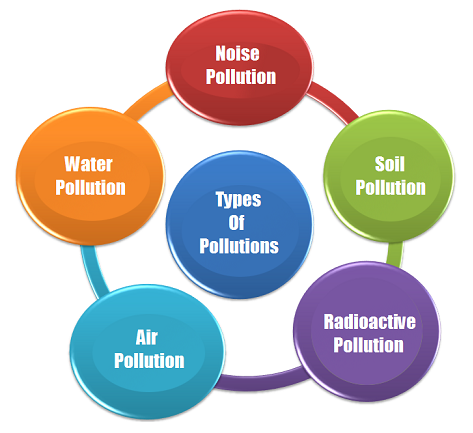Which pollution will have the greatest effect on human health? How does pollution affect human health? Why is pollution bad for human health? What impact does air pollution have on human health? We breathe air to live and what we breathe has a direct impact on our health.

Breathing polluted air puts you at a higher risk for asthma and other respiratory diseases. Such sources of emissions liberate gases and substances that are toxic for human beings, the most harmful of which are: tropospheric ozone (O ), sulphur dioxide (SO ), nitrogen dioxide (NO ), benzo (a) pyrene (BaP) and suspended particulate matter (PM). It can harm the water and food which are in direct contact with the polluted soil. When there is too much noise or an unpleasant sound causing a temporary disruption in the natural balance is known as noise pollution. The main causes of noise.
Its impact can be seen locally, at regional level as well as at global level. Improved industrialization of poorer countries, increased consumerism, and greater pressures on world waste disposal services have all led to large amount of pollutants entering the oceans in a variety of ways. Watery eyes , coughing and difficulty breathing are acute and common reactions. An estimated percent of the world’s population live in areas with dangerous levels of air pollution an e ven at seemingly imperceptible levels,.

Pollution or the introduction of different forms of waste materials in our environment has negative effects to the ecosystem we rely on. In this infographic you can know how it affects human beings. Effects of Air Pollution: on Human Health, Animals and Atmosphere! Health Effects Associated with Air Pollutants:. People living in urban and industrial areas are particularly prone to varied types of diseases due to air pollution.
USC’s Children’s Health Study has studied the long-term effects of air pollution on children over the past years and found that kids who move to areas with lower levels of pollution have improved lung function growth and performance. Air pollutants have serious adverse effect on human health. Long-term health effects can include chronic respiratory disease, lung cancer, heart disease, and even damage to the brain, nerves, liver, or kidneys.
Continual exposure to air pollution affects the lungs of growing children and may aggravate or complicate medical conditions in the elderly. Sources of health effects of air pollution. While air pollution has long been associated with increased health risk, our study demonstrates that for the elderly, differences in pollution between neighbors, even those who live on the same street or within a few blocks of each other, can increase risks of heart attack and deaths from heart disease. Drinking water can be a source of exposure to chemicals caused by nutrient.
Nitrates in drinking water. Byproducts of water treatment. Stormwater runoff can carry. Circadian Rhythm and Melatonin.

Like most life on Earth, humans adhere to a circadian rhythm — our biological clock — a sleep-wake pattern governed by the day-night cycle. If you are exposed to very high levels of air pollutants, you may experience irritation of the eyes, nose and throat, wheezing, coughing and breathing problems and have a greater risk of heart attacks. Watery eyes, coughing and difficulty breathing are acute and common reactions. All of the world’s oceans contain huge amounts of plastic,. Plastic in our food chain.
Industrial pollutants suffocating commercial fisheries. Agricultural runoff and sewage dumping can lead to major algal blooms,. Environmental pollution has a cumulative effect on the health of not just humans, but every living being.
Pollution mainly is categorised as air, water, noise and land pollution. In urban areas, in particular, the current disease pattern is closely linked to the deterioration in the quality of air and water. There are two ways in which the environment affects human health. Psychological health effects from noise include depression and anxiety. Individuals who have hearing loss, including noise induced hearing loss, may have their symptoms alleviated with the use of hearing aids.
Individuals who do not seek treatment for their loss are more likely to have depression than their aided peers. Read these tips on how to avoid the harmful effects of smog.
No comments:
Post a Comment
Note: Only a member of this blog may post a comment.